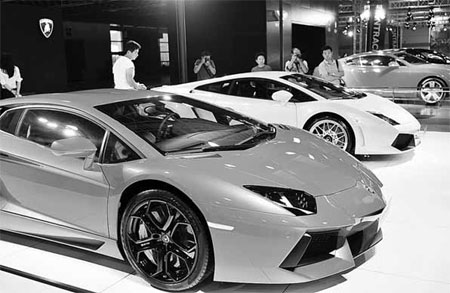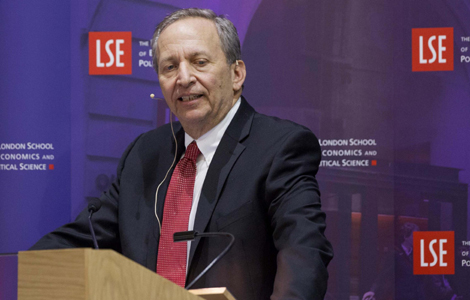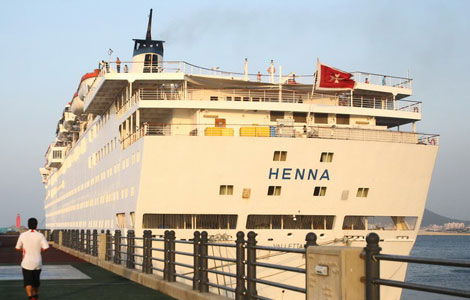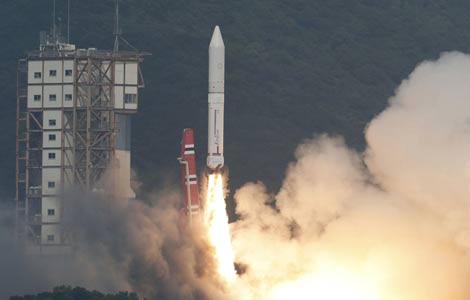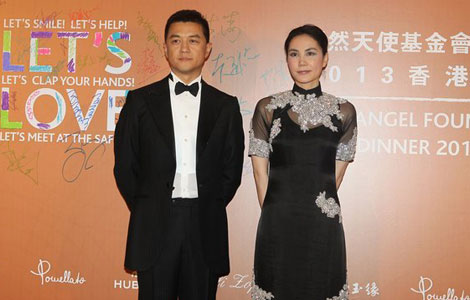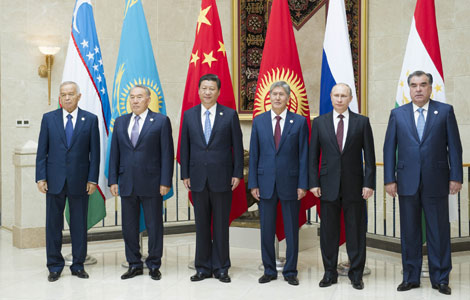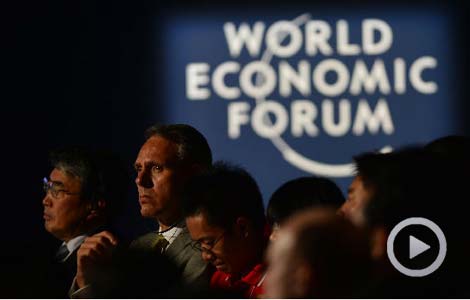Talk of exorbitant prices puts automakers in hot seat
Updated: 2013-09-16 08:16
By Wang Chao in Beijing (China Daily)
|
||||||||
|
Industry experts say luxury cars should be exempt from rules relating to monopolies. He Youbao / for China Daily |
Foreign automakers may be subjected to closer scrutiny over their pricing as demand for luxury vehicles remains robust in China, experts say.
Prices of imported cars have been a hot topic recently following a series of investigations launched by the government over pricing by foreign companies in various sectors. The China Automobile Dealers Association had last month indicated that it had been asked by the National Development and Reform Commission to collect information on whether foreign car makers were setting a minimum retail price for dealers in China.
Chinese customers are expecting a fall in prices following the announcement of the inquiry. However, industry experts maintain that premium prices will continue to remain unchanged, as demand continues to increase.
Luo Lei, deputy secretary-general of the association, says it plans to collect data on the prices of foreign cars and the profit margin made to ascertain whether price manipulation has taken place and whether prices in China are higher than in the home markets of the car companies.
Debate about foreign cars gathered further steam after China Central Television aired a program that came down heavily on what it said are exorbitant prices and huge profit margins enjoyed by foreign auto brands in China.
Citing the example of a popular imported foreign car with a price tag of 1.89 million yuan ($310,000), the program said the profit enjoyed by the automaker on that model was about 470,000 yuan. Since dealers are not allowed to adjust the retail prices without approval of the manufacturer, it is also an instance of a price monopoly in the Chinese market, CCTV says.
Although foreign automakers faced a media blitz subsequently, they have refrained from making any comment.
Tao Jingzhou, managing partner of Dechert LLP, an international law firm, says the planned investigations are a welcome step because it shows China's "increasing attention to the laws and regulations in the global market", and the government's intention to create a level-playing field for all companies in China.
"These kinds of investigations happen from time to time in developed countries, so it is normal to see them in China," Tao says. "Once a company violates the law, whether it be a foreign company or a Chinese company, it is subject to punishment.
"Thirty years ago we treated multinationals as 'super-citizens' but now we should treat them as equal market players, with no special favors or discrimination."
Although the Chinese market is becoming more regulated, that does not mean the high price of foreign cars can be brought down by just one or two investigations, experts say.
"This excessive margin problem has existed for more than 10 years," says Su Hui, vice-chairman of the dealers' association. "We have raised proposals before on looking into this price manipulation, but there was no real result."
However, industry experts feel that unlike medicines and milk powder, luxury cars should be categorized as luxury products and exempted from rules relating to monopolies.
"I think people who buy luxury cars in China know about the price disparity very well," says John Zeng, Asia-Pacific forecasting director for LMC Automotive Consulting, an industry consultancy. "It is obvious that pricing is not an issue for these customers, because their wealth and social status are often measured in the high price they pay for the cars."
However, most of the foreign automakers, speaking on condition of anonymity, blamed high import tariffs and other taxes for the high prices.
For instance, tariffs and taxes on an imported 5-liter sports car total 144 percent of the original price. So a car with an original sticker price of 1 million yuan can easily cost in excess of 2.5 million yuan in China.
Some lawyers insist that brands setting the lowest pricing violates China's anti-monopoly law, while others think imported cars are far from achieving a monopoly status in China.
They cite legal precedents stipulating that a market participant is deemed a monopoly if its market share exceeds 50 percent, or if the combined market share of two participants exceeds two-thirds.
The domestic market is highly competitive, and importers are vying with domestic companies to grab market share. So it is far-fetched to suggest that foreign companies have colluded on price or achieved a price monopoly, Tao of Dechert says.
Market data also suggests there is no monopoly in the market. The total number of cars imported into China each year is about 1 million, and imports of BMW and Mercedes-Benz, the top two companies, total about 300,000 units, less than the two-thirds benchmark.
What further reassures foreign automakers is the fact that the auto industry in China is too large and too important to be crushed under monopoly charges.
The China Association of Automobile Manufacturers says 19.3 million cars were delivered in China last year, while the output value of the industry was more than 5.3 trillion yuan.
Unlike other sectors, the Chinese automobile industry has a healthy amalgamation of Chinese and foreign brands. Except for some super luxury brands, most of the foreign automakers have domestic partners in China. Experts say the investigations will hurt the prospects of Chinese partners and fail to bring the prices down.
To address the price problem, the government has to strike out some inappropriate regulations, says Zeng of LMC. The first regulation to amend, he says, would be the brand management method imposed by the government in 2005, which requires auto dealers to get authorization from manufacturers before they can sell cars. "In the US market, it is just the opposite," Zeng says. "If a brand wants to enter a regional market, they have to get approved by the dealers association.
"In China, automakers, or brands, have a much bigger say than in other countries. Brands want to maintain the profit margin and the premium profile, so dealers have very little power to lower the prices."
Such authorization is found in very few sectors in China.
"Only when this outdated regulation is phased out will we see the results of fair competition," Zeng says. "Free competition is most important."
wangchao@chinadaily.com.cn
(China Daily USA 09/16/2013 page14)
Most Viewed
Editor's Picks

|

|
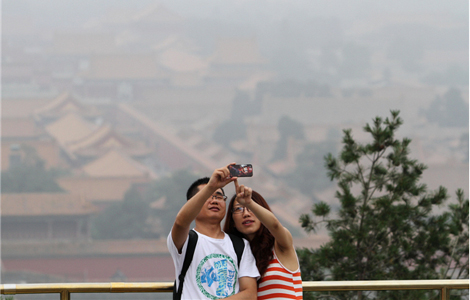
|

|

|

|
Today's Top News
USDA's OK of chicken processing challenged
US top carpet maker sets up in China
States laud lifting of ban on hardwood by China
UN chief gets report on Syria chemical weapons
Succession proves a tricky art in business
Going global? Not so easy
Japan switches off nuclear reactor
Summers withdraws from Fed chair contest
US Weekly

|

|
